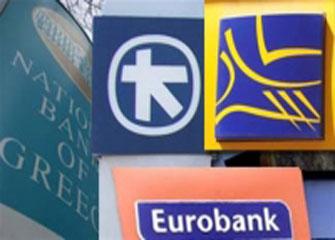By BBC
Greek bank shares have fallen sharply after the country’s finance minister warned this weekend the eurozone would collapse if Greece were to leave.
Mr Varoufakis told Italian broadcaster RAI such an exit would see the euro fall like a “house of cards”.
Shares in Greece’s four largest banks have fallen by between 8.5% and 16%.
It comes as the UK prime minister chaired a meeting of officials this morning to discuss the impact on the UK of a Greek exit from the eurozone.
Italy’s finance minister Pier Carlo Padoan tweeted that Mr Varoufakis’s comments were misplaced and insisted Italy’s debt was “manageable”.
But ahead of a meeting of G20 finance ministers in Istanbul on Monday. Mr Padoan said he had “had a chat” with Mr Varoufakis and “exchanged some messages”.
‘House of cards’
“There is no problem, and even less so on a personal level,” Mr Padoan said.
“Italy’s objective is to find a shared solution to Greece’s situation, starting with the eurogroup meeting in Brussels on Wednesday,” he was quoted as saying by the AGI news agency.
“The European institutions are very open to finding a solution in everybody’s interest. For the moment there is no plan B. Before anything else we must see what plan A is.”
On Sunday Mr Varoufakis said: “Greece’s exit from the euro is not something that is part of our plans, simply because we believe it is like building a house of cards. If you take out the Greek card, the others will collapse.”
He added: “Italian officials… have approached me to say they are supportive of us but that they cannot tell the truth both because Italy risks bankruptcy and they fear the consequences with Germany.”
“A cloud of fear has hung over Europe in recent years. We have become worse than the former Soviet Union.”
Italy’s debt amounts to just over 130% of GDP, compared to 175% for Greece.
Contagion
Earlier on Monday, UK prime minister David Cameron chaired a meeting of senior Treasury officials and asked for information on the impact on Greece, and the rest of the eurozone, of Greece leaving the single currency.
Steps to ensure British banks and companies would not be excessively damaged were also discussed at the meeting.
The prime minister’s spokesman said later that the overwhelming majority of Greek debt is held by eurozone institutions, not by Britain, and that reforms since the previous crisis in 2012 may have lessened the vulnerability of other European countries to a shock from Greece.
But Mr Cameron’s spokesman added: “There do remain risks around contagion and uncertainty and so it is important to look at all of those.”
However, the government still sees some kind of compromise between Athens and the eurozone as possible.
Meanwhile, Canada’s finance minister Joe Oliver called for compromise over Greece’s debt ahead of Monday’s G20 meeting.
“There has to be compromise. It’s clear that Greece has got to be prepared to make some changes, and I think a wholesale repudiation of their debt is not on the cards. But other countries, creditors will have to work with Greece to arrive at a compromise solution,” Mr Oliver said.
“I don’t think anybody wants Greece to leave the currency union.”
Share’s in Greece’s Piraeus Bank fell 16%, while shares in Eurobank and National Bank of Greece both fell more than 10% and Alpha Bank shares fell 8.5%.









